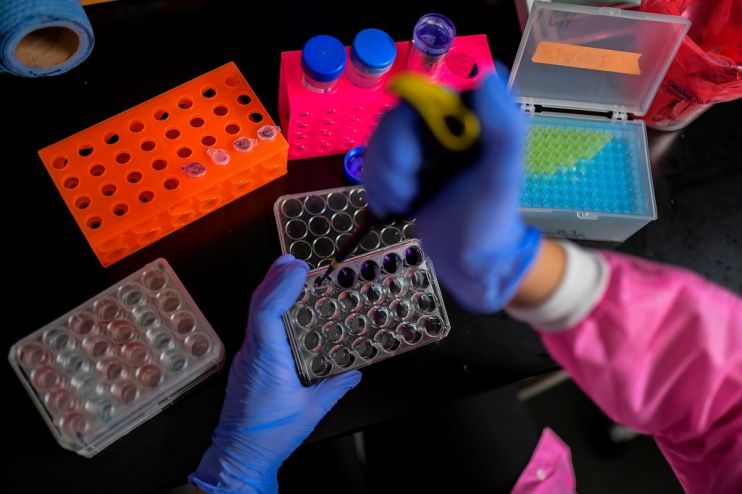Gilead to trial ‘inhaled’ version of coronavirus drug

Pharmaceuticals giant Gilead Sciences is set to start human trials of an inhaled version of its remdesivir antiviral drug, the company announced today.
Gilead said in an open letter that it was seeking healthy volunteers for Phase 1 trials this week, with the aim of launching human trials in August.
Remdesivir is currently administered intravenously, meaning patients can only receive it in hospital. An inhaled version of the antiviral drug would mean patients could take it quickly and easily at home.
Gilead chairman and chief executive Daniel O’Day said: “If the trials are successful, this could represent important progress.”
“An inhaled formulation would be given through a nebuliser, which could potentially allow for easier administration outside the hospital, at earlier stages of disease. That could have significant implications in helping to stem the tide of the pandemic.”
Shares dipped 2.3 per cent to $75.67 at market close despite the news.
US regulator the Food and Drug Administration (FDA) last month authorised the drug for use on seriously ill Covid-19 patients, after a government study found that it could shorten hospital recovery time by around four days — almost a third of the normal recovery time.
Gilead will now look at how the antiviral drug, which was originally developed to tackle Ebola, could be used to treat earlier stages of the virus, with people receiving it in outpatient settings.
“Our hope is that earlier intervention could help patients avoid hospitalisation altogether,” said O’Day. The company expects to have more than 2m batches of remdesivir by the end of the year and aims for “many millions more” by 2021.
It comes as the NHS last week approved the use of common steroid dexamethasone on coronavirus patients in hospital, following “breakthrough” results in UK trials.
The widely-available steroid was shown to reduce death among patients on ventilators and oxygen, prompting the UK chief medical officers to recommend its use “with immediate effect”.
The World Health Organization (WHO) today called for a rapid increase in production of dexamethasone after successful UK trials.
WHO chief Tedros Adhanom Ghebreyesus said he was confident production could be ramped up. “Although the data are still preliminary, the recent finding that… dexamethasone has life-saving potential for critically ill Covid-19 patients gave us a much-needed reason to celebrate,” Tedros said in a statement.
But while both dexamethasone and remdesivir may cut the risk of death for patients who have already contracted the virus, the global race for a vaccine is still in full steam.
A potential coronavirus vaccine spearheaded by Astrazeneca and the University of Oxford is currently leading the charge, having secured a contract with the EU to provide up to 400m doses of the potential vaccine by the end of 2020.
Pascal Soriot, chief executive of the British drugs firm, said the drug was showing promising signs in its third stage of clinical trials, and that the vaccine would likely “protect for about a year”.